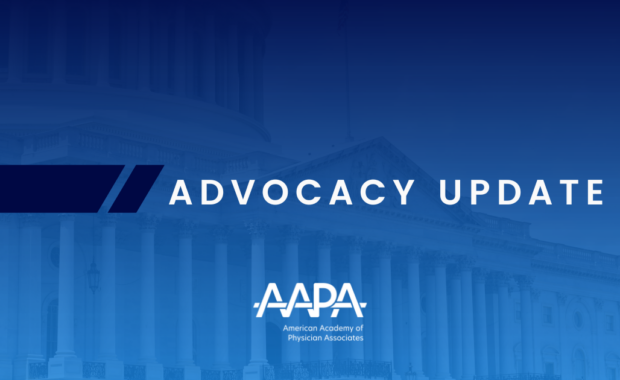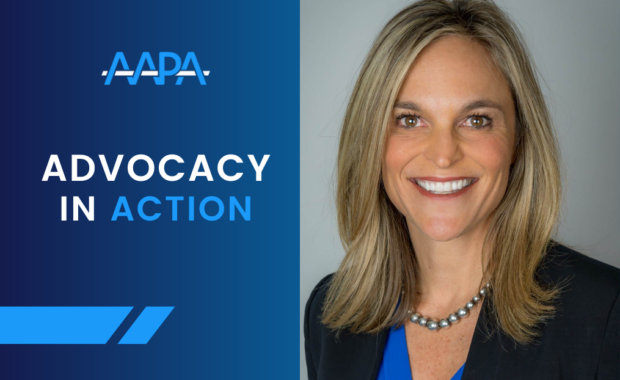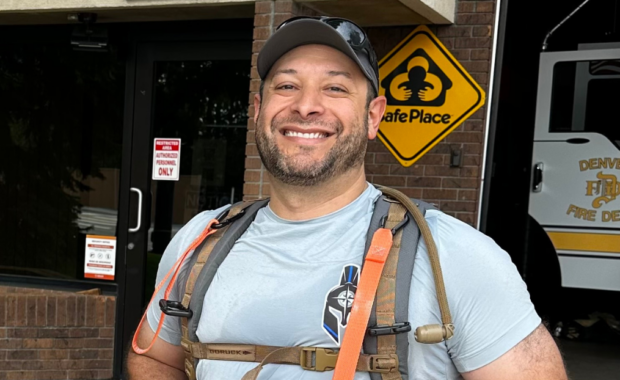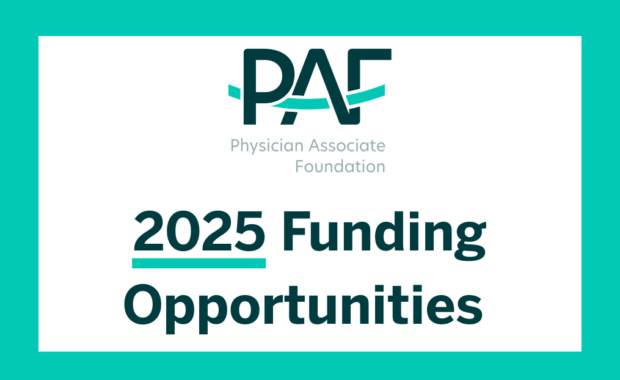PAHPM Helps to Develop Palliative and Hospice Care CME
Law Opens Up New Practice Opportunities
April 11, 2018
By Eileen Denne, CAE, APR
Palliative care is specialized care, an extra level of support, for people with serious or chronic illnesses and their families. It focuses on relieving the symptoms and stress of a serious illness following a diagnosis, going hand-in-hand with curative treatment and improving quality of life for both the patient and their family.
Despite the growing recognition of the value of palliative care, the majority of healthcare practitioners have insufficient training to provide a basic level of palliative care to their patients. With our aging population and a shortage of expert palliative care practitioners, there may never be enough specialists to provide all the palliative care needed. This is why basic palliative care skills should be incorporated into every PA’s ‘toolkit’ and every PA student’s knowledge base.
New Palliative Care CME with CSU
To help provide that training, AAPA’s Specialty Organization, PAs in Hospice and Palliative Medicine (PAHPM), connected with California State University (CSU) Institute for Palliative Care to design a new one-hour online course: “What Every PA Needs to Know about Palliative Care”.
According to Nadya Dimitrov, PA-C, secretary of PAHPM, the effort began with a request to develop this module for PAs for CSU’s collection of “What Every Practitioner…” series.
“Primarily we saw a need to fill a gap in the essential material that is currently offered as primary palliative care/medicine (PCM) knowledge for all PAs – no matter what their specialty,” Dimitrov said. “As part of our mission, PAHPM promotes education and advocates for policy to enable PAs to practice in hospice and palliative medicine. CSU Institute for Palliative Care is an organization that has a great track record with PCM education in an online format. I took the lead so that we could adapt the existing module to PA practice, and the rest of the PAHPM board reviewed and approved of the final version.”
When asked what PAHPM would like PAs to know about the course and why they should take it, Dimitrov explained: “PAs provide life-saving diagnostic and therapeutic care, often in primary care settings, leading patient-centered medical teams or in close association with other members of a patient’s healthcare team. As more and more patients seeking care are presenting with serious or chronic illness, every PA needs to be equipped with a basic set of tools for assisting patients and families through these stressors. Generalist or basic palliative care skills can – and should – be integrated into every PA’s practice.”
The course will teach PAs what they need to know about palliative care’s relevance to their everyday practice. It focuses on the principles of palliative care/medicine, the palliative care team, models of care delivery in different practice settings, communication, and helping patients to access palliative care. Here are the objectives:
- Differentiate among “usual” care, palliative care, and hospice care.
- Identify the role of each member of the palliative care team and the benefits of interdisciplinary care.
- Describe unique elements of the palliative care delivery process.
- Recognize the value of palliative care in specific care settings.
- Conduct an advance care planning conversation.
- Assess and identify patients who would benefit from palliative care.
Update on NCP Guidelines at AAPA 2018
In addition to the online course, PAs looking for more information on palliative care can attend a session during AAPA 2018. On Tuesday, May 22, PAHPM President Rich Lamkin, PA-C, and NCP Project Director Gwynn Sullivan, MSN, will talk about the National Consensus Project (NCP) Guidelines. The NCP aims to formalize and delineate evidence-based processes and practices for the provision of safe and reliable high-quality palliative care for adults, children, and families with serious illness in all care settings. Read more about the guidelines here.
New Hospice Law in Effect January 2019
Judy Knudson, PA-C, Assistant Professor, University of Colorado, and PAHPM board member, reports that beginning on January 1, 2019, PAs are reimbursable for services provided for their palliative care services and join hospice providers to care for the seriously ill.
The Medicare Patient Access to Hospice Act allows PAs to be reimbursed as part of the hospice interdisciplinary team and for their services caring for hospice patients. Knudson says many years of work and legislative effort from AAPA and PAHPM, as well as grassroots support, promoted the legislation. Until now, PAs have been limited in the practice of hospice care delivery because of lack of reimbursement.
“As the care for the seriously ill is already impacted by a severe workforce shortage, leaving this talented group of professionals out of the loop has been a serious misstep,” Knudson says.
Though this legislation paves the way, she thinks there is still much to do. PA leaders are currently working with state legislatures to define the details as to how this actually translates into practice.
A vital first step, Knudson says, is to prepare PAs as they encounter patients who need hospice care. Educational resources are key, she adds and can be found on the PAHPM website.
“Palliative and hospice care are a great fit for PAs because it encompasses the physical, social, spiritual and emotional aspects of patient care,” Knudson concludes.
Read more about CSU CME What Every PA Needs to Know about Palliative Care.
Eileen Denne is director, corporate communications at AAPA. Contact her at [email protected].
Thank you for reading AAPA’s News Central
You have 2 articles left this month. Create a free account to read more stories, or become a member for more access to exclusive benefits! Already have an account? Log in.



